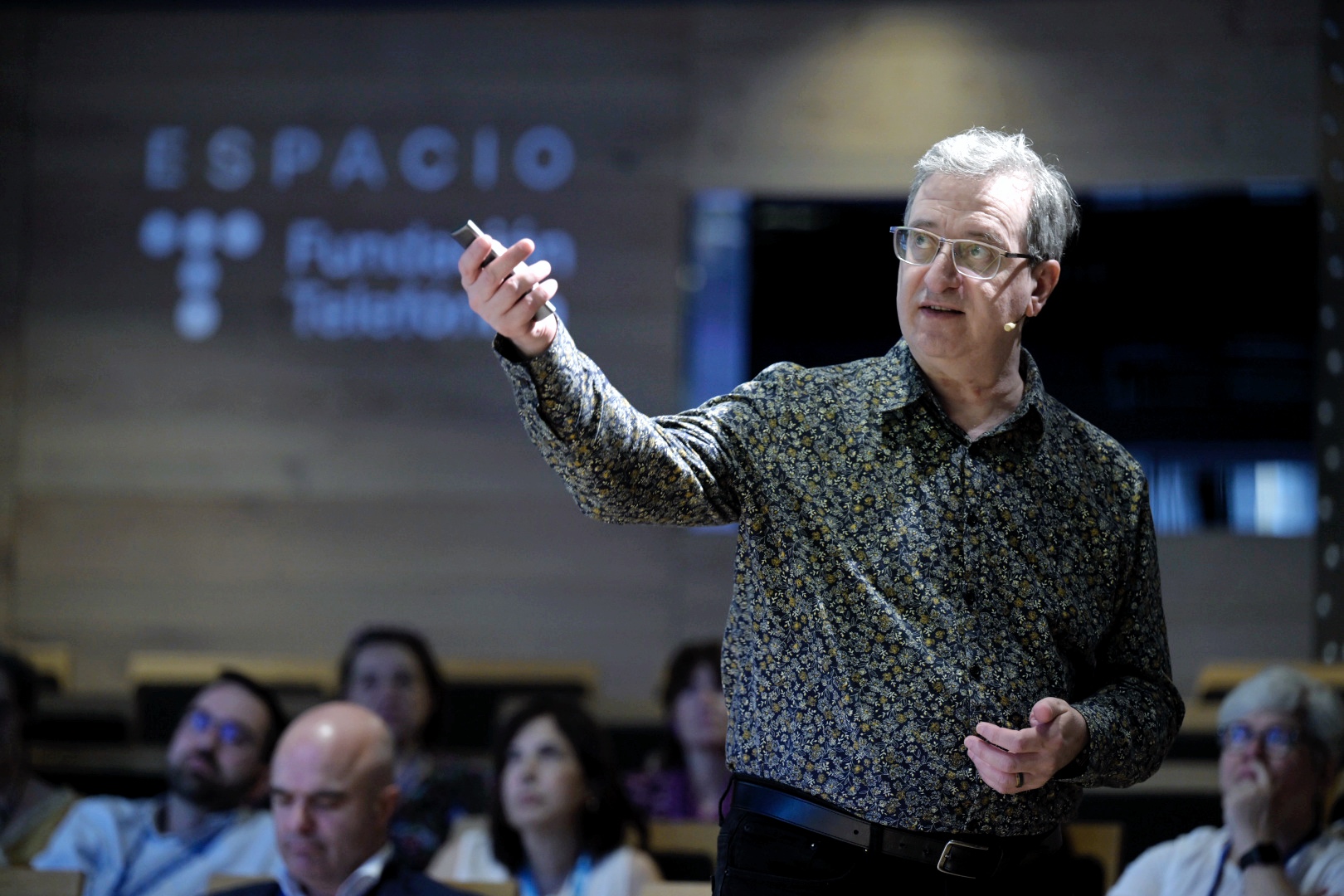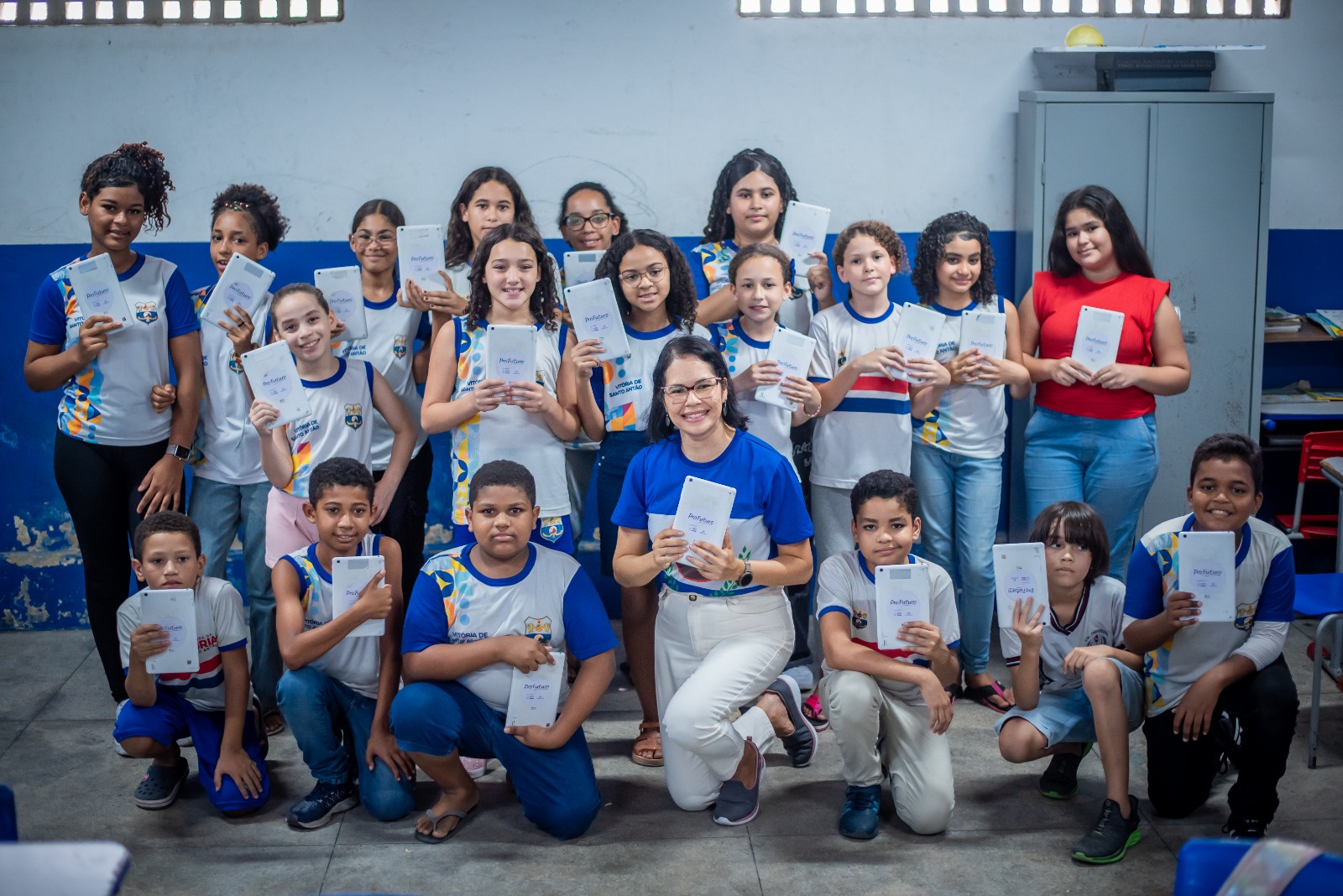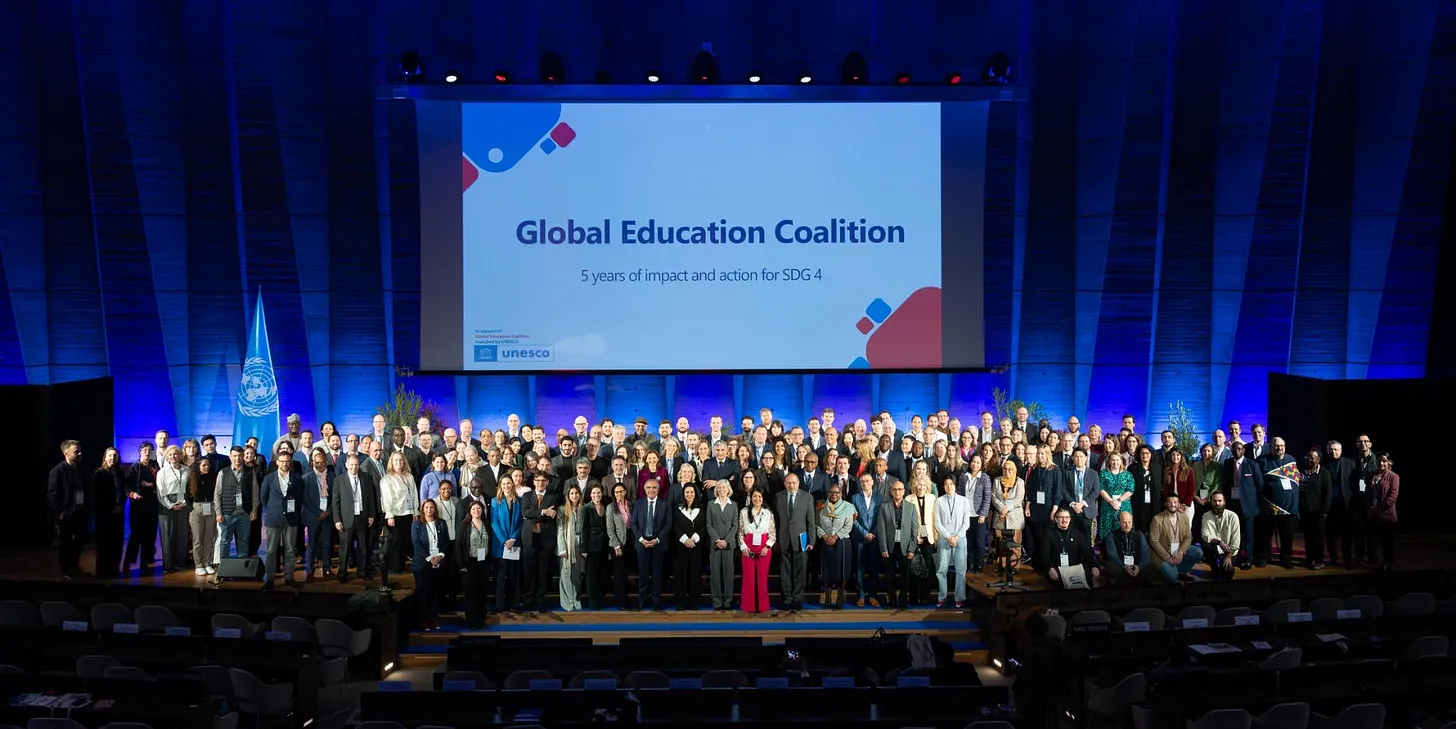On the occasion of the Spanish publication of the book Education for the Age of Artificial Intelligence (Fundación Santillana), its author Charles Fadel—one of the most influential voices in the field of educational innovation and president of the Center for Curriculum Redesign—visited Espacio Fundación Telefónica this Tuesday.
Luis Prendes, General Director of Fundación Telefónica, welcomed him with these words: “In times of noise and vertigo, Charles has chosen to write slowly and think deeply. He has managed to speak with both reason and heart. His commitment to education is not only technical, but ethical. He does not seek to adapt us to the future, but to preserve what is essential in order to navigate through it. It takes great courage to defend the human in a world that moves forward as if it could do without it. This book does not impose diagnoses, but opens up multiple conversations. It asks us what kind of humanity we want to preserve.”
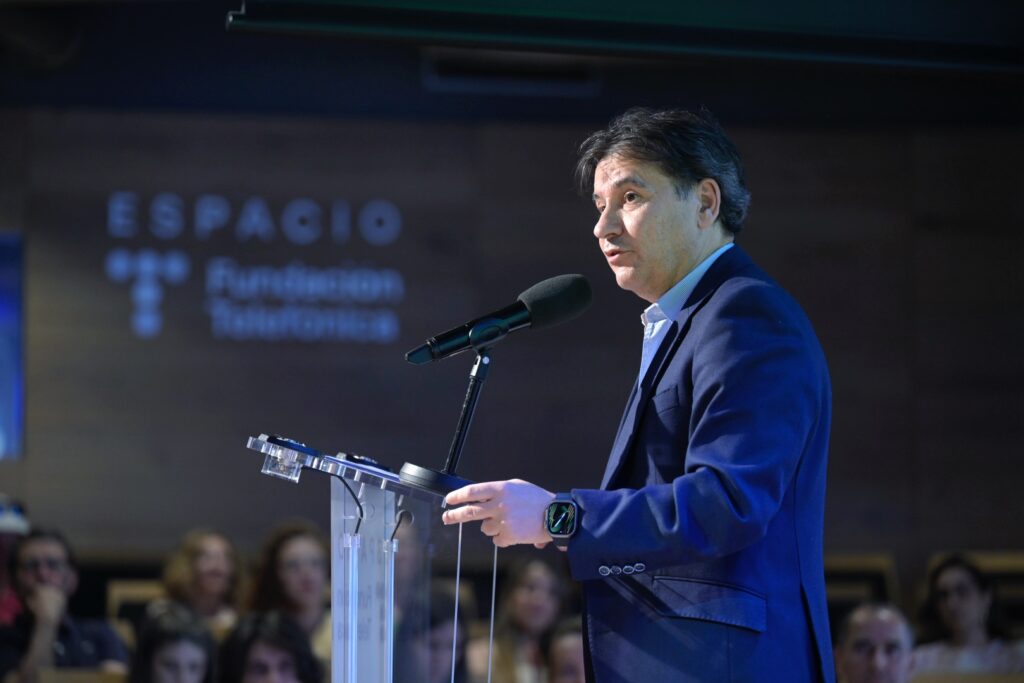
At a time as decisive as the one we are currently experiencing in global education, the combination of structural crises—such as the prolonged impact of the pandemic, the growing shortage of teachers, and the decline in academic performance—has highlighted the urgent need to rethink what we teach, how we teach it, and, above all, why we teach it.
In this regard, the author, who was accompanied by Magdalena Brier, General Director of ProFuturo, stated that passion and vocation are key to keeping motivation alive. “With the massive sophistication in the field of education, we need to change the when and how of teaching. It’s essential that students feel motivated. And the only thing that truly motivates them is purpose, projects—something they genuinely care about. Teachers must be the ones who contextualize all of this. They must continue to be relevant as educators.”
The book is, in fact, a wake-up call about how artificial intelligence, while potentially a powerful ally for personalizing learning and optimizing resources, can also exacerbate certain inequalities, reproduce risks, or even threaten teacher autonomy.
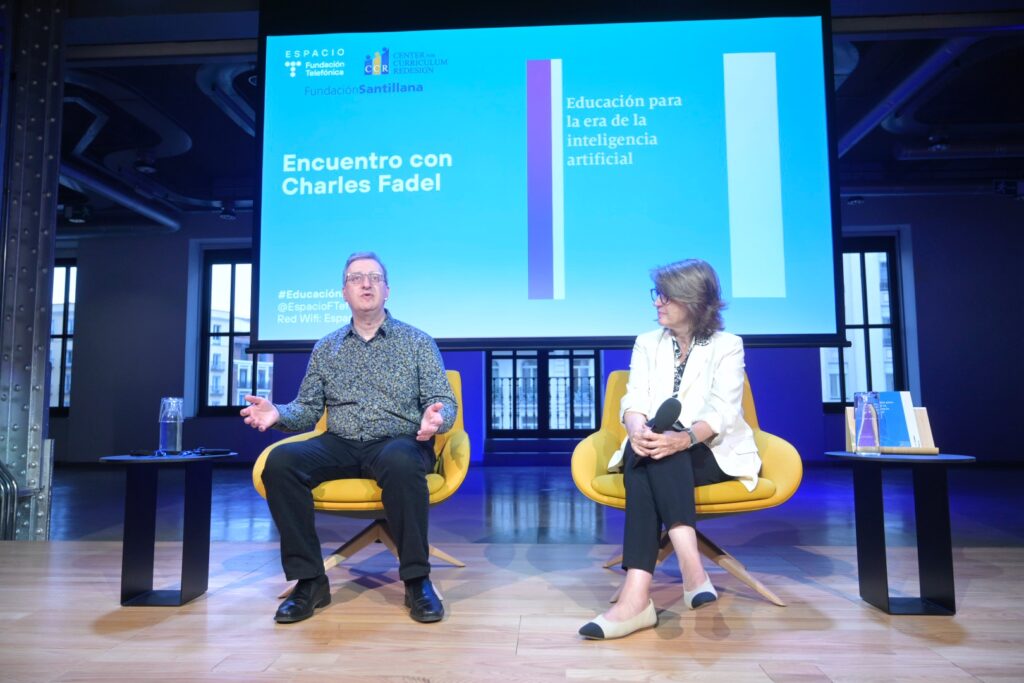
In addition to listing some of the challenges and opportunities that artificial intelligence presents in this context, there was also time to reflect on the professions that may emerge in the future. “People adapt—they don’t just wait for technology to overrun them. Some tasks can be automated, and new ones will also appear,” he argued. Hence, his advice is versatility, “like a Swiss Army knife”: “Be a generalist first, and then a specialist. If jobs are uncertain, entrepreneurship is the job of the future.”
During the event, Fadel also took the opportunity to highlight the importance of critical thinking, both inside and outside the classroom: “The world is changing, and there’s no escaping that change,” he warned. “What has changed in the last decade is the emergence of systems trained on the entire internet. They’ve devoured Wikipedia and a huge amount of data. But these systems are still fragile. It only takes a few pixels for them to make a mistake.”



